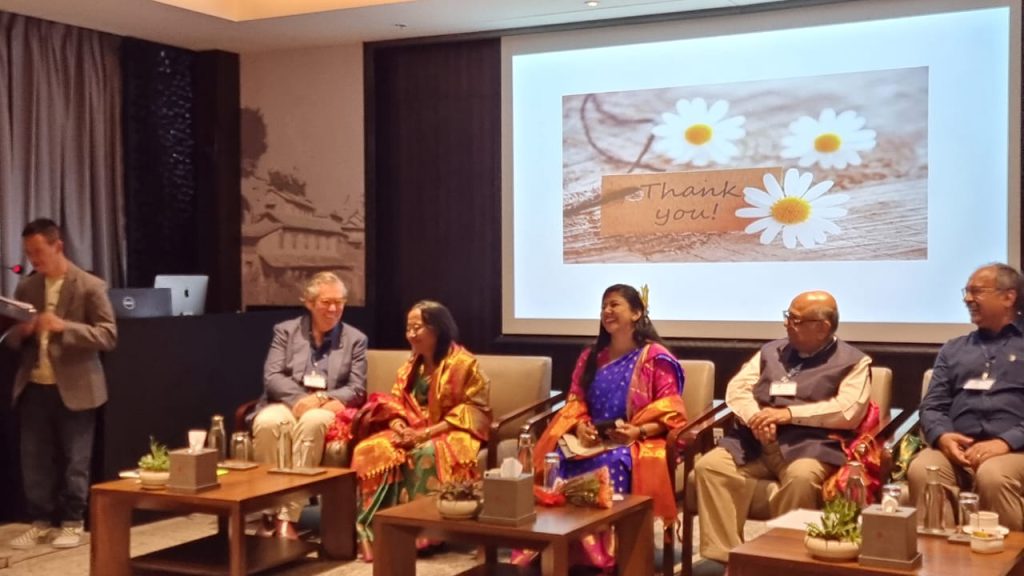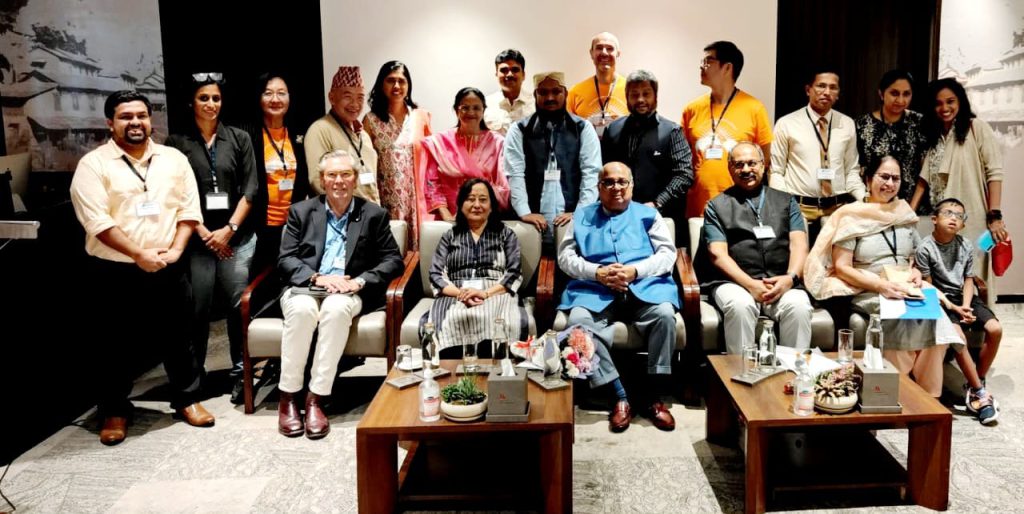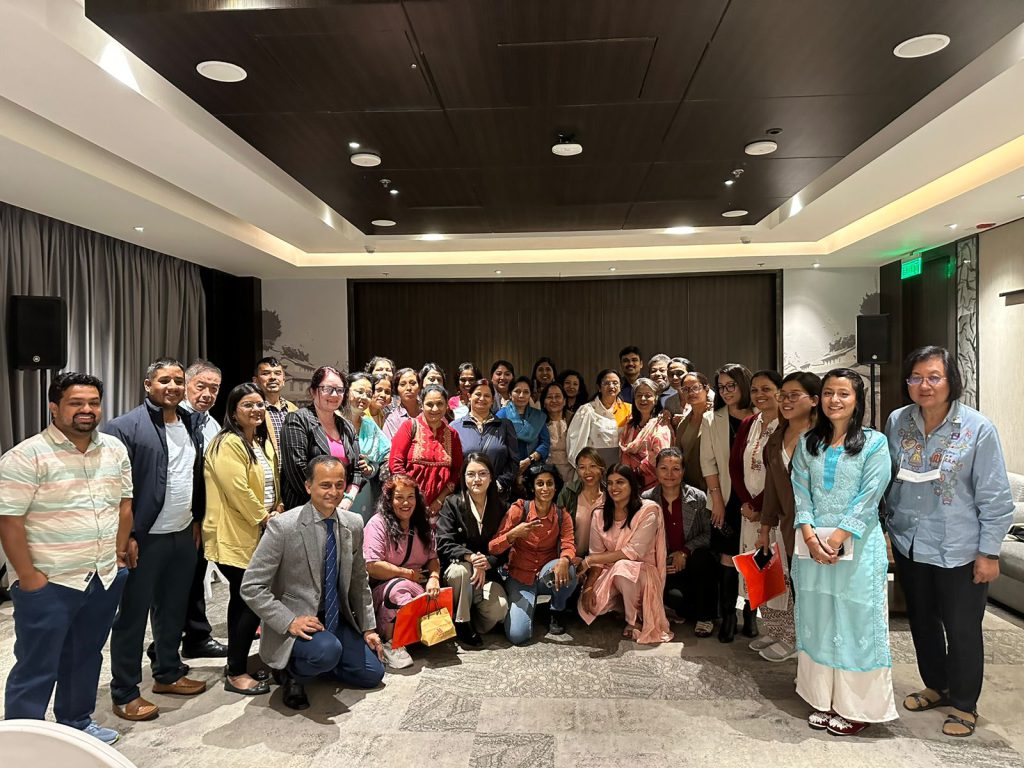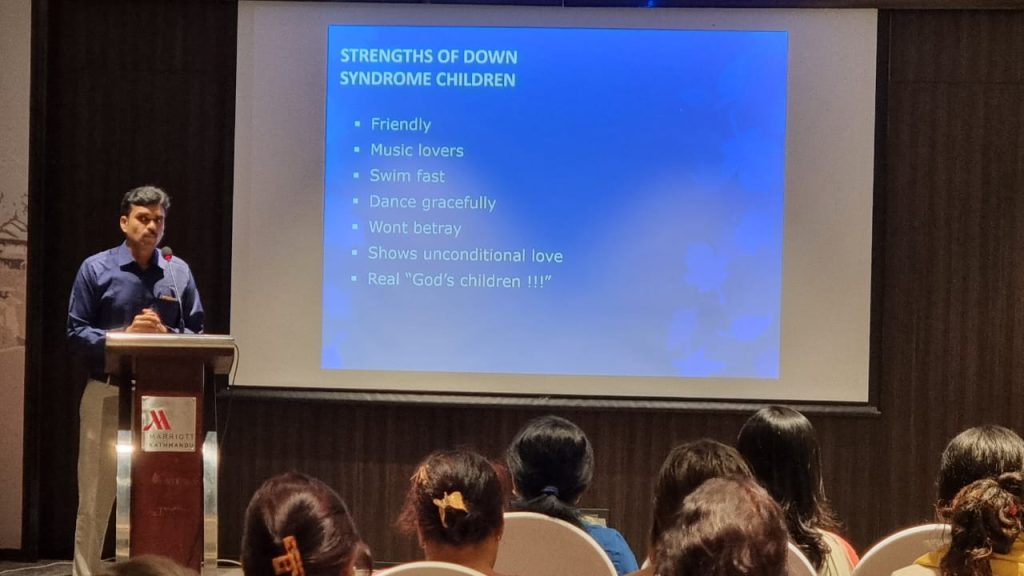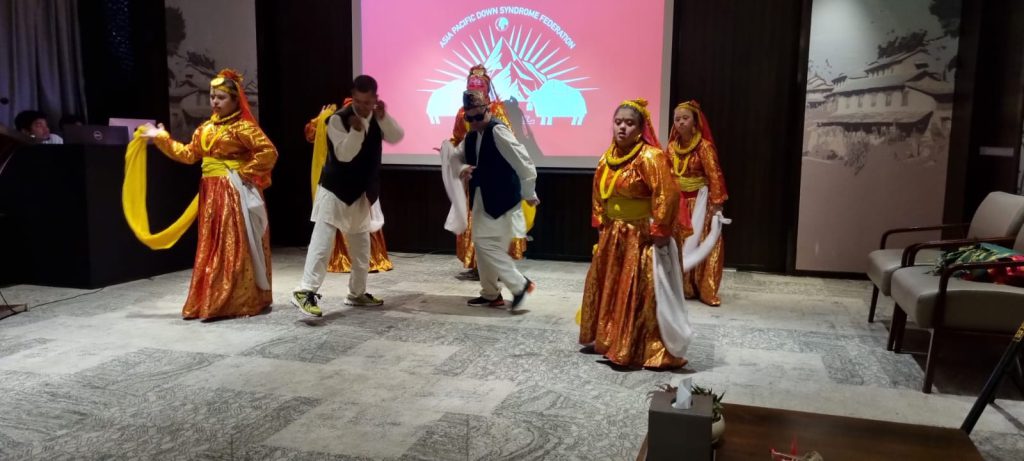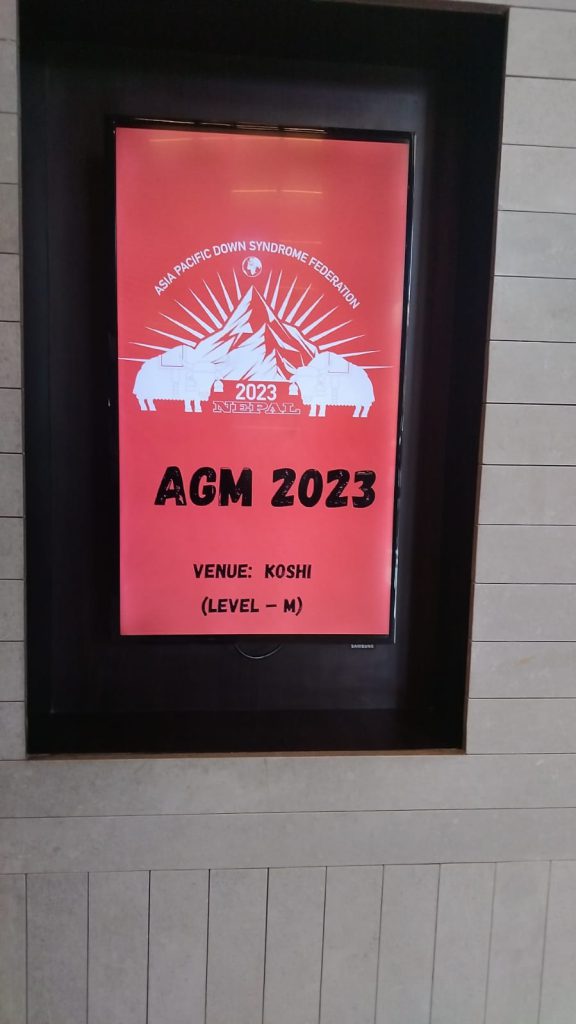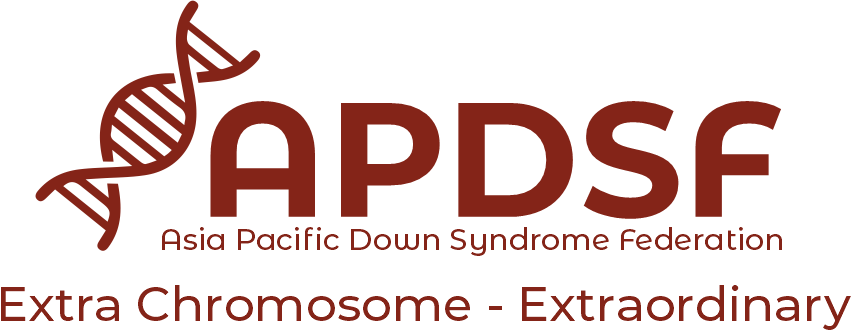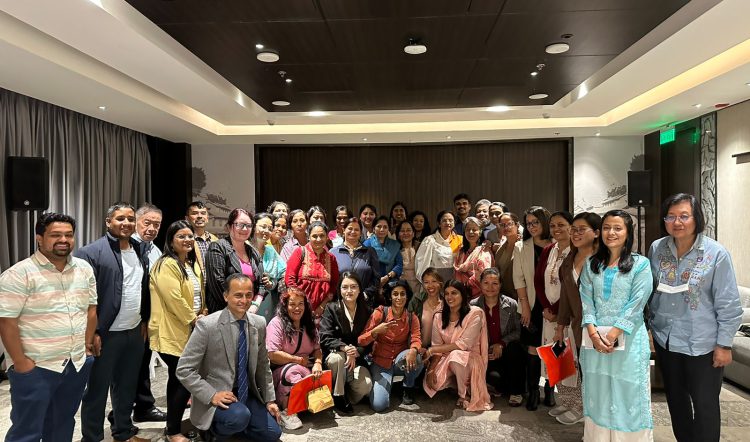APDSF AGM 2023
The APDSF AGM 2023 was organized at Kathmandu, Nepal in association with the local body -DSSHA was attended by 10 countries – India, Nepal, Pakistan, Bangladesh, Sri Lanka, Thailand, Mongolia, Singapore, Australia and UK represented by the advisor of APDSF, Mr. Paul Zanon.
The inauguration of the event was with a speech by self-advocate Ashish Joshi. That was followed by a dance performance by self-advocates – a solo performance by Mr. Ashish Joshi and a group dance by some enthusiastic participants. Graceful and charming, the self-advocates showed those present that they could do anything if given an opportunity. The Chief Guest of the event was the Honorable Deputy Mayor of Kathmandu, Ms. Sunita Dangol. She was inspired and amazed at the talent displayed and promised to support persons with Down syndrome in whichever way she could. She requested all parents and those present to reach out to her and she would try to get the required action taken by the Government.
This time, the idea was to support local therapists by assisting them with information and training which therapists from India and Singapore provided. There were about 25 local therapists who took advantage of this. Since both India and Singapore have well-established therapy regimes for children, it was but natural that both these countries joined hands to provide this training. It has been planned to have these kinds of training for any location that hosted the APDSF AGM. The various presentations at Kathmandu are being shared here for the benefit of everyone.
Another interesting session was the discussion on the Fitness of our self-advocates. Col. Subash Thapa of Nepal spoke to the gathering about his plans on helping self-advocates reach Everest Base Camp. This is the follow-up on the first ever Downs Mountaineering workshop organized by him in association with DSFI.
The AGM also had its regular medical committee meeting where it is planned to create Guidelines for the entire region on Post Natal Counselling. This should be ready by November. Collaborations with other organizations was also discussed to help and support more persons with Down syndrome.
The next AGM is scheduled to be organized in 2024 at either Singapore or Malaysia depending on collaboration with some other bodies that are being planned.
Presenting a few glimpses from the event.
Training children with Down Syndrome – Hemamalini V S, Special Educator – Read More…
Behavior Modification Positive Redirection – Read More…
Teaching Reading and Numeracy skills – Hemamalini V S, DSFI Chennai – Read More…
